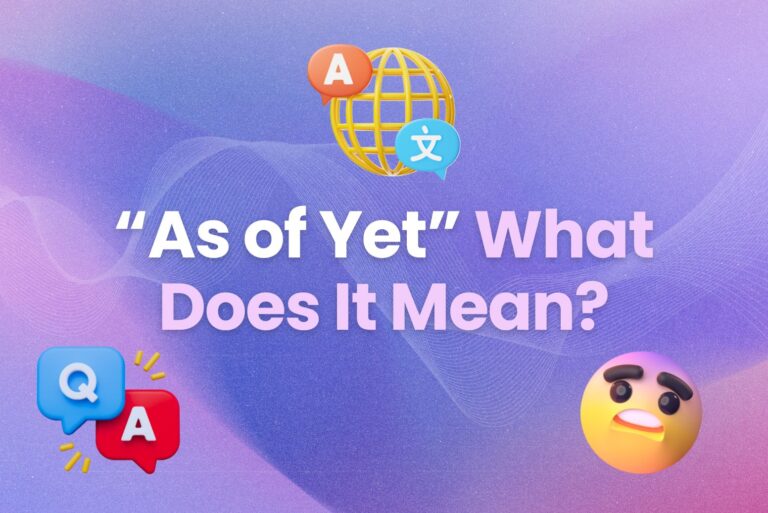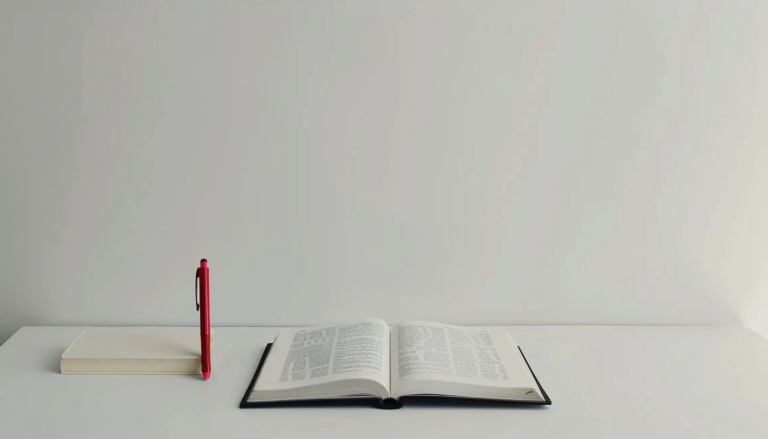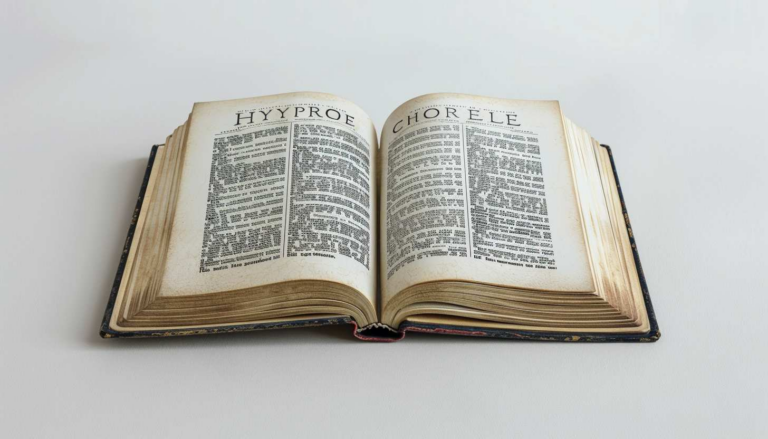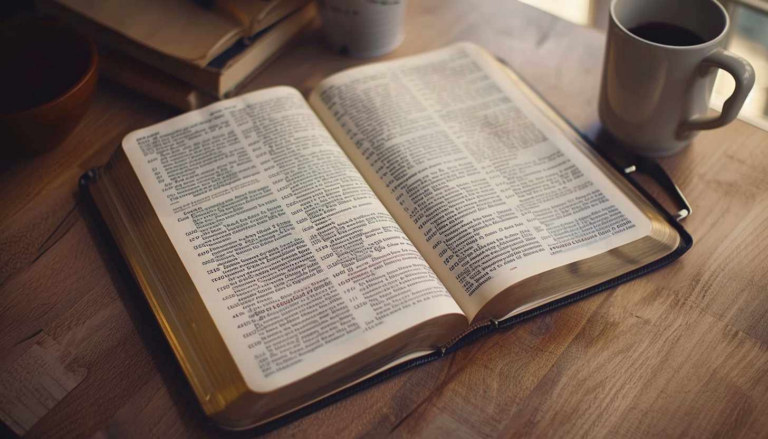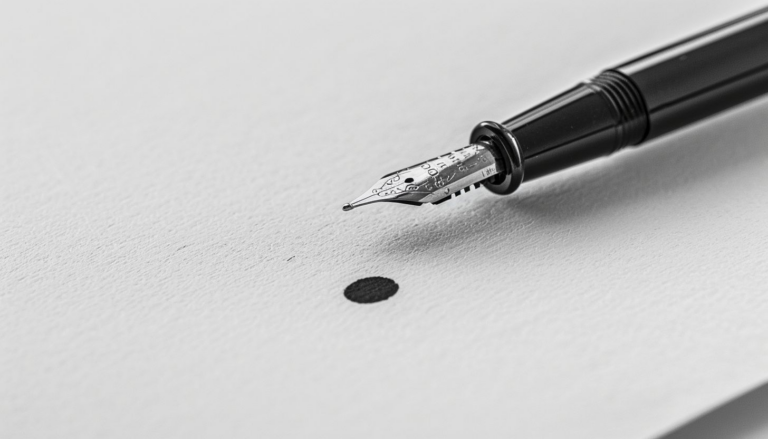Pun Definition, How to Use & Examples
Have you ever heard a joke that made you groan and laugh at the same time? Chances are, it was a pun. Here are some pun definition examples that will help you understand this funky word better!
What Is a Pun?

A pun is a clever play on words that relies on their multiple meanings or similar sounds to create humor, wit, or even a bit of confusion—on purpose, of course! Often used in everyday conversations, advertising, memes, and even literature, puns add a layer of fun and creativity to language.
For instance:
- I told my friend a chemistry joke, but I got no reaction.
(Here, “reaction” cleverly refers both to a chemical reaction and their lack of response.)
Pun Definition and Examples
A pun is a form of wordplay that creates humor, irony, or wit by using:
- Homophones: Words that sound the same but have different meanings.
(Example: “I’m reading a book on anti-gravity—it’s impossible to put down.”) - Multiple Meanings: A single word with more than one interpretation.
(Example: “Time flies like an arrow; fruit flies like a banana.”)
Pun Examples
- I used to be a banker, but I lost interest.
(“Interest” refers to both financial interest and losing enthusiasm.) - The math teacher made too many “acute” angles in class.
(“Acute” plays on its double meaning as both an angle type and a clever remark.) - I wanted to make a belt out of watches, but it was a waist of time.
(“Waist” cleverly substitutes for “waste” to create a funny twist.)
Pun Definition Grammar
Homophones: Words that sound the same but have different meanings.
- Example: “I’m on a seafood diet—I see food, and I eat it.”
(“Seafood” and “see food” sound alike but have different meanings.)
Homonyms: Words that are spelled and pronounced the same but have different meanings.
- Example: “The musician was noted for his strong composition.”
(“Noted” refers to being famous and to musical notes.)
Wordplay with Context: Using the meaning of a word in an unexpected or humorous way.
- Example: “I wanted to be a chef, but I couldn’t make the cut.”
(Plays on “making the cut” in both cooking and success.)
Examples of Puns in Grammar
- “This vacuum sucks!”
(Double meaning of “sucks” as both poor performance and vacuum function.) - “The librarian is a great person to check out!”
(Plays on the act of checking out books and noticing someone’s qualities.) - “He stole my Microsoft Office, but I’ll get my Word back.”
(“Word” cleverly refers to both the program and a vow for justice.)
Easy Pun Examples
Animal Puns
- I’m pawsitive you’ll love this idea!
- Don’t trust the stairs—they’re always up to something.
- You otter know how much I care about you.
- The horse said neigh to the idea of running today.
- I’m feline good after that catnap.
Food Puns
- Lettuce celebrate your success!
- I donut know what I’d do without you.
- You’re eggs-actly what I needed today.
- This is nacho average party.
- I’m on a roll—sushi roll, that is.
Life Puns
- I used to work at a calendar factory but got fired for taking a day off.
- That bakery was on fire—too many hot buns!
- I couldn’t figure out how to fix the light bulb, but then it clicked.
- I wanted to be a doctor, but I didn’t have the patience.
- I’m reading a book on anti-gravity—it’s impossible to put down.
Pop Culture Puns
- Taylor Swift fans never go out of Style.
- Yoda best when it comes to Star Wars trivia.
- Marvel at how I always assemble great Avengers jokes!
- Harry Potter fans don’t spell trouble—they spell Hogwarts.
- Finding Nemo fans: Just keep punning!
Simple Pun Captions for Social Media
- Sundays are made for sofa-lounging and pun-derful movies!
- Feeling grate-ful for all the cheese today.
- Life is gouda when you’re with friends.
- Cereal-ously can’t wait for the weekend!
- Chill out—I’m on ice cream duty today.
Pun Definition Slang
In slang terms, a pun is often referred to as wordplay or a dad joke—a clever, and sometimes cheesy, twist on words that makes people either laugh or groan (or both). It’s all about using words that have double meanings, sound similar, or create unexpected humor in everyday conversations.
Pun Definition Literature
In literature, a pun is a rhetorical device or figure of speech that plays on the multiple meanings of a word or on words that sound similar to create humor, wit, or a deeper meaning. Not only do puns engage the reader and add clever wordplay to a text, but they also provide layers of complexity that can make a story more intriguing.
Examples of Puns in Literature
William Shakespeare’s Romeo and Juliet
Mercutio’s famous dying words:
“Ask for me tomorrow, and you shall find me a grave man.”
- Here, Shakespeare masterfully uses the word grave to mean both “serious” and “dead.” The pun not only adds a touch of humor to a tragic moment but also deepens the dramatic irony, as the audience understands the double meaning while the characters in the scene may not.
Charles Dickens’ Great Expectations
In Pip’s narration:
“I am indebted to him for my first idea of the interview; and for his having exactly caught the tone of the way I felt about being ‘done.’”
- Dickens’ use of the word “done” is an excellent pun, meaning both being deceived and being finished or completed. This clever wordplay reflects Pip’s emotional turmoil, connecting his sense of betrayal with his larger feelings of personal failure.
Oscar Wilde’s The Importance of Being Earnest
The very title of the play is a pun, playing on the name Ernest and the virtue of being earnest, or sincere.
- Wilde’s witty wordplay mirrors the themes of identity, truth, and deception in the story. In fact, the pun becomes a central device that connects the characters’ personal struggles with the larger social critique in the play.
Lewis Carroll’s Alice’s Adventures in Wonderland
The Mock Turtle describes his education in reeling and writhing, a pun on the traditional “reading” and “writing.”
- Carroll’s use of puns fits seamlessly into the whimsical and surreal tone of Wonderland. By twisting everyday concepts into nonsensical wordplay, he emphasizes the absurdity of the world Alice has entered, drawing readers deeper into its fantastical logic.
James Joyce’s Finnegans Wake
“A way a lone a last a loved a long the riverrun.”
- Joyce’s works are often overflowing with puns, and here, “riverrun” brilliantly evokes both the image of a flowing river and the cyclical nature of the novel itself. This pun connects the physical landscape to the metaphysical themes of time, memory, and life’s endless loops.
Pun Examples for Students
Puns are a fun and creative way to play with language, making them perfect for students to learn and enjoy. By using words with double meanings or similar sounds, puns can add humor to conversations, schoolwork, or even captions on social media. Here are some easy-to-understand pun examples for students, categorized for everyday use, classroom humor, and pop culture references.
- I used to play piano by ear, but now I use my hands!
(Playfully twists the idea of “playing by ear” into a literal joke.) - I’m reading a book about anti-gravity—it’s impossible to put down!
(This pun plays on the double meaning of “put down” as both stopping a book and overcoming gravity.) - I wanted to be a baker, but I couldn’t make enough dough.
(Here, “dough” refers to both bread dough and money.) - What do you call fake spaghetti? An impasta!
(A pun that plays on the sound of “impasta” resembling “imposter.”) - Time flies like an arrow; fruit flies like a banana.
(This pun twists “flies” from literal movement to the insect, creating a humorous misinterpretation.)
Classroom and School-Related Puns
- The math teacher loves making acute angles—they’re just right!
(Plays on “right” as both correct and a type of angle.) - The science lab had too many elements—it was in its element!
(A clever wordplay connecting chemistry and comfort zones.) - The librarian is very book-smart—she always checks things out.
(This pun uses the dual meaning of “checking out” books and assessing situations.) - The history teacher’s jokes are ancient—they belong in a museum!
(A playful jab at outdated jokes, tying them to history.) - The art teacher’s favorite shape is a circle—it’s well-rounded.
(A pun connecting a circle’s literal shape with being well-rounded as a compliment.)
Pop Culture and Social Media Puns
- Taylor Swift fans are never out of Style.
(This pun cleverly references her song Style while complimenting fans.) - Yoda best Star Wars fan I know.
(Plays on Yoda’s name while mimicking his unique speech pattern.) - The Avengers’ team meetings are Marvel-ous.
(Uses “Marvel” both as the adjective and the franchise name.) - Finding Nemo fans just keep swimming through life’s challenges.
(A pun on the iconic Finding Nemo mantra, adding motivation.) - The Hunger Games are so intense—they’re on fire!
(A playful nod to Katniss Everdeen as the “Girl on Fire.”)
Animal Puns for Students
- Why don’t elephants use computers? They’re afraid of the mouse!
- Turtles never rush—they shell out their time.
- I’m pawsitive you’ll ace the test tomorrow!
- The horse loves math because it’s good at stable equations.
- The fish was so good at school—it was the bass of the class!
Pun Intended Meaning
The phrase “pun intended” is commonly used to highlight a deliberate pun or wordplay in a sentence. It signals to the audience that the speaker or writer knowingly used a pun, often for humor, cleverness, or to add a playful twist to their statement.
- I wanted to tell a pizza joke, but it was too cheesy (pun intended).
(Here, “cheesy” refers to both the flavor and being overly corny.) - The clock was hungry—it went back four seconds (pun intended).
(Plays on “four seconds” sounding like “for seconds.”) - The flower shop business is blooming (pun intended).
(“Blooming” cleverly refers to both growth and flowers.) - I’m reading a book about anti-gravity—it’s impossible to put down (pun intended).
(“Put down” refers to both stopping reading and defying gravity.) - The artist paints pictures of dancers—she’s drawn to movement (pun intended).
(“Drawn” means both attracted to and literally drawing.)
Ten Examples of Puns
1. Food Pun
“I’m on a seafood diet—I see food and I eat it.”
(Plays on “seafood” and “see food” for a humorous twist.)
Lettuce celebrate your big day!
(Plays on “lettuce” and “let us.”)
This omelet is egg-cellent!
(“Egg-cellent” substitutes for “excellent” in a playful way.)
I donut care what anyone says—I love dessert!
(“Donut” sounds like “do not.”)I’ve bean thinking about you a latte.
(Plays on “bean” and “been,” as well as coffee culture.)
2. Animal Pun
“Why did the scarecrow win an award? Because he was outstanding in his field.”
(A pun on “outstanding” meaning excellent and literally standing in a field.)
I’m otterly in love with your jokes!
(Plays on “otter” and “utterly.”)
The dog was very fetching.
(Plays on “fetching” as both retrieving and attractive.)
Stop lion around and get to work!
(“Lion” replaces “lying” for a punny twist.)
The fish got caught, hook, line, and sinker.
(Plays on fishing terminology and being fully involved.)
3. Everyday Humor
“I used to be a baker, but I couldn’t make enough dough.”
(“Dough” refers to both bread dough and money.)
I gave all my dead batteries away—they were free of charge.
(Plays on “free of charge” as both no cost and no electricity.)
I stayed up all night to see where the sun went, and then it dawned on me.
(“Dawned” refers to both realization and sunrise.)
I couldn’t figure out how to fix the doorbell, but then it rang a bell.
(Plays on the idiom “rang a bell” and the literal object.)
4. Science Pun
“The scientist was reading a book on anti-gravity—it’s impossible to put down!”
(The pun connects “put down” as both stopping reading and defying gravity.)
Why are chemists excellent at solving problems? They have all the solutions.
(Plays on chemical solutions and problem-solving skills.)
Biologists have a lot of cell-f confidence.
(“Cell-f” cleverly replaces “self” for a biology twist.)
The physics teacher was very attractive—she had magnetic energy.
(“Magnetic” refers to literal physics and charm.)
5. Classroom Pun
“Math teachers have too many problems.”
(Plays on “problems” meaning both difficulties and math exercises.)
The history teacher’s jokes are history—they’re that old.
(Plays on “history” as both a subject and outdated.)
The geography teacher’s knowledge rocks!
(A pun on “rocks” for geography and awesomeness.)
The English teacher doesn’t like contractions—it’s not their style.
(Plays on “contractions” in grammar and hesitation.)
6. Pop Culture Pun
“Taylor Swift fans are never out of Style.”
(Refers to Swift’s song Style while complimenting her fans.)
Harry Potter fans are spellbound by the books.
(“Spellbound” refers to both magic spells and being captivated.)
Loki fans are truly mischief-makers.
(Plays on Loki’s identity as the God of Mischief.)
Star Wars fans can always sense the pun is strong with them.
(References the Force and wordplay.)
7. Animal Humor
“The horse is very stable.”
(The pun plays on “stable” as both calm and a horse’s home.)
I’m not lion when I say you’re the mane event. 🦁
I whale always love you. 🐳
Puns for Social Media Captions
- Donut worry, be happy! 🍩
- Sundae funday, anyone? 🍨
- I’m soy into you. 🍣
- This is nacho average lunch. 🌮
- Slice, slice baby. 🍕
- I’m feeling tropic like it’s hot. 🌴
- Seas the day! 🌊
- Wander-ful moments ahead. ✈️
- Time to go off the grid, literally. 🗺️
- Canoe believe this view? 🚣
- Stop owl-ing around and smile. 🦉
- This outfit is purr-fect. 🐱
- Just winging it today. 🐦
- I’m paws-itively fabulous. 🐾
- Don’t be a lion, this was a great day. 🦁
- Feeling un-brr-lievable after that run. 🏃♀️❄️
- No weights, no gains. 💪
- Namaste in bed, or should I yoga? 🧘♀️
- Lettuce turnip the beet in this workout. 🥗🎶
- Squat goals! 🏋️
- You’re the bee’s knees. 🐝🌸
- What’s up, buttercup? 🌼
- Beach you to it. 🏖️
- Ice cream, you scream, we all scream for summer! 🍦
- Feeling gourd-geous in these autumn vibes. 🎃🍂
- Falling for this sweater weather. 🍁
- Sleigh all day. 🛷🎅
- Feelin’ frosty and fabulous. ❄️
- I’m Marvel-ous today. 🦸♂️
Final Words
Puns are more than just clever wordplay—they’re a delightful and universal way to connect, entertain, and engage with language. In fact, whether it’s a witty line from Shakespeare, a cheeky Taylor Swift lyric, or a playful social media caption, puns always manage to bring a smile (or a groan!) to the table. Not only do they add humor to our lives, but they also make communication more memorable and impactful.
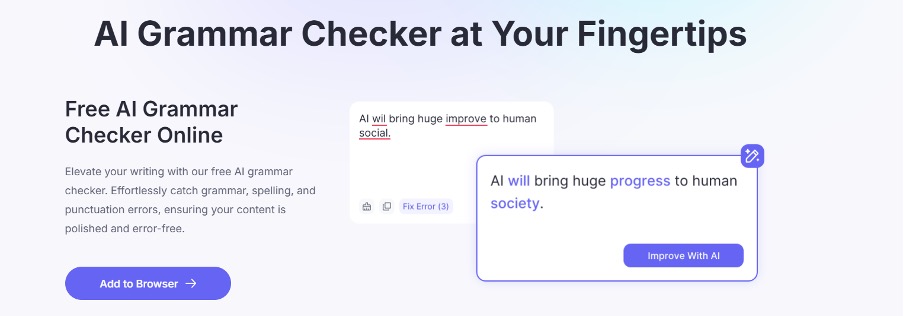
And if you want to take your wordplay and writing skills to the next level, why not let Arvin AI help? With its grammar-checking expertise, you can ensure that your puns, captions, or essays are not only error-free but also perfectly polished.
FAQ
“Puning” typically refers to the act of crying or whining in a weak or feeble way. It’s often associated with a soft, plaintive expression of sadness, distress, or discomfort. While not commonly used in modern contexts, you might encounter it in older English literature or regional dialects. For instance, in historical texts, a child might be described as “puning” when they are fretful or irritable.
The word “punn” in English generally relates to “pun,” which is a form of wordplay. A pun involves the humorous or clever use of words that sound alike or have multiple meanings to create a witty or ironic effect.
It’s playing with words for humor or wit.
A playful competition of puns.
Yes, it means silly or funny.
Work with clever or playful word usage.
“I’m on a seafood diet—I see food, and I eat it.”
“Time flies like an arrow; fruit flies like a banana.”
“This vacuum sucks!”
“The math teacher has too many problems.”
“I donut care what you think!”
“Lettuce celebrate your success!”
“Taylor Swift fans are never out of Style.”
“The horse is very stable.”
“Marvel fans assemble great jokes!”
“The scientist’s book on anti-gravity is impossible to put down.”
